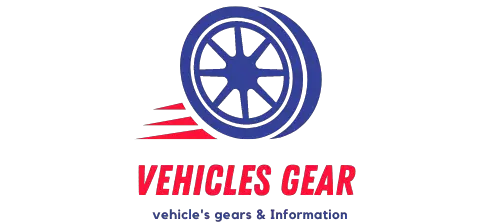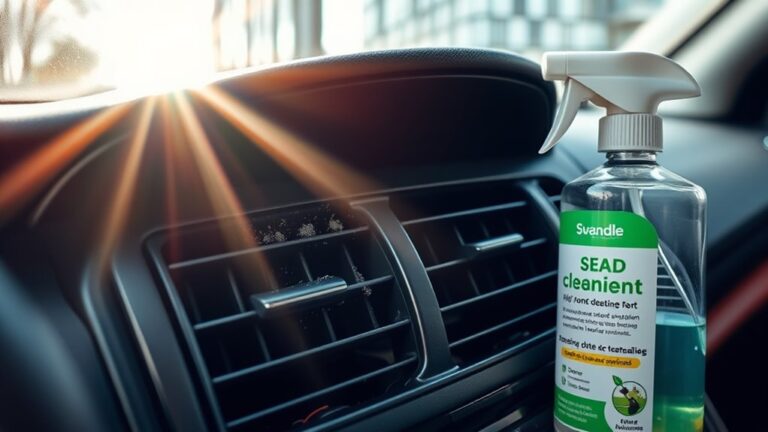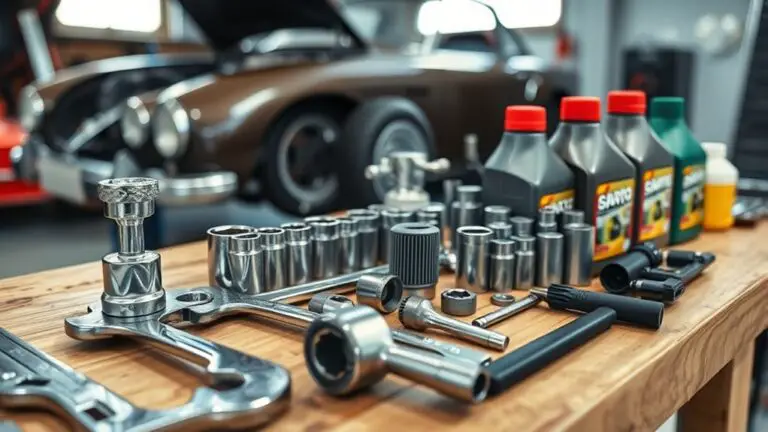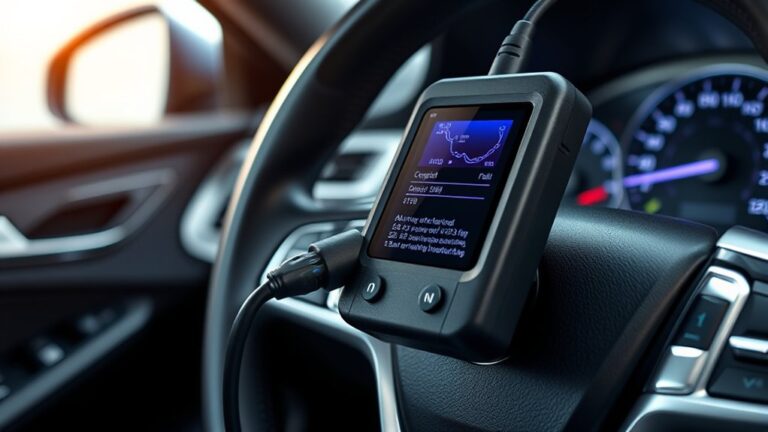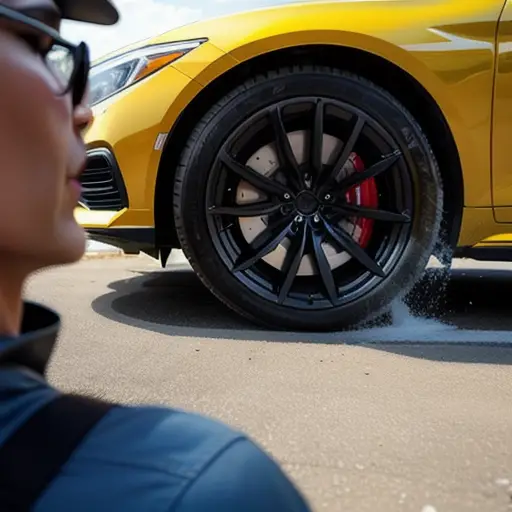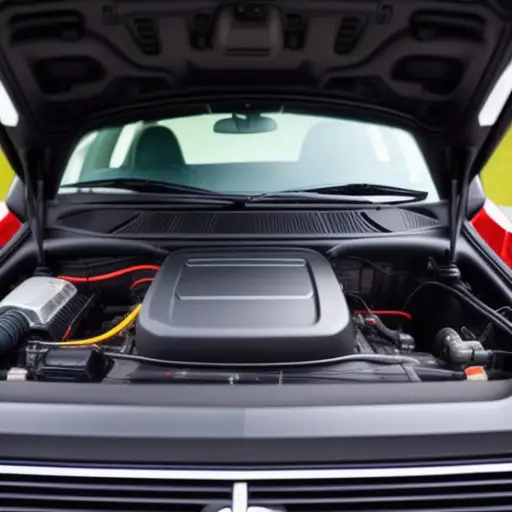Will Toyota 5 Lug Wheels Fit Chevy? (Are They Interchangeable)
If you’re in the market for new wheels for your Chevy and have come across some Toyota 5 lug wheels that you like, you may be wondering if they will fit your Chevy. The short answer is that it depends on several factors.
Toyota and Chevy use different bolt patterns, which means that the number of bolts and the spacing between them are different. This can make it challenging to install Toyota 5 lug wheels on a Chevy that’s designed to use a different bolt pattern.
However, it is possible to make Toyota 5 lug wheels fit a Chevy with some modifications. For example, you can use wheel adapters or spacers to adjust the bolt pattern and spacing to match your Chevy’s requirements. Alternatively, you could have the wheels drilled to match the Chevy’s bolt pattern, but this is not recommended as it can weaken the wheel’s structure and potentially cause safety issues.
It’s essential to do your research and consult with a professional mechanic or wheel expert before attempting to install Toyota 5 lug wheels on a Chevy to ensure the safety and compatibility of your vehicle.
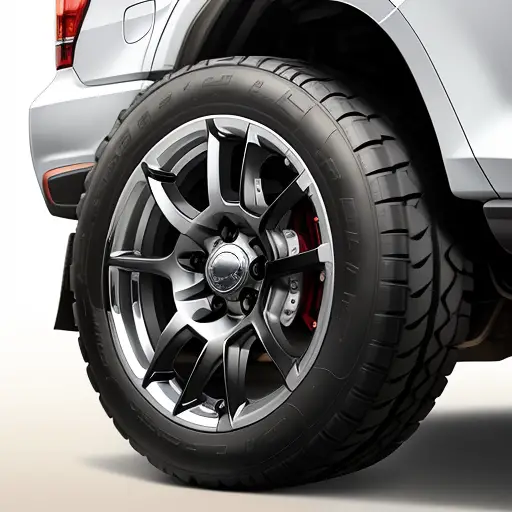
An Overview Of What You Need To Know About Bolt Patterns
Bolt patterns are a critical aspect of wheel and tire compatibility for any vehicle. A bolt pattern refers to the number of bolt holes in the wheel and the diameter of the circle they create. Matching the bolt pattern on the wheel to the hub on your vehicle is crucial for proper fitment and safety.
Most vehicles have either a 4-lug or 5-lug bolt pattern, although other bolt patterns exist as well. For example, a Chevy Silverado typically has a 6-lug bolt pattern, while a Ford Mustang has a 5-lug bolt pattern.
When shopping for new wheels or tires, it’s essential to make sure that the bolt pattern of the wheel matches the bolt pattern of your vehicle. If the bolt pattern doesn’t match, the wheel won’t fit correctly, which can lead to issues like vibrations, uneven tire wear, and potentially dangerous situations.
If you’re unsure about your vehicle’s bolt pattern, you can typically find it in your owner’s manual or by searching online using your vehicle’s make, model, and year. It’s always best to consult with a professional mechanic or wheel expert to ensure proper fitment and safety when installing new wheels or tires on your vehicle.
Are Toyota 5 Lug Wheels Compatible With Chevy?
In most cases, Toyota 5 lug wheels are not compatible with Chevy vehicles. This is because Toyota and Chevy use different bolt patterns, which means that the number of bolts and the spacing between them are different.
Toyota wheels typically have a 5×114.3 bolt pattern, while Chevy vehicles typically have a 5×120 bolt pattern. The difference in bolt patterns means that Toyota wheels won’t fit correctly on Chevy vehicles without modifications.
However, it is possible to use wheel adapters or spacers to adjust the bolt pattern and spacing to match your Chevy’s requirements. This is not recommended as it can potentially weaken the structure of the wheel and cause safety issues. Additionally, modifying the wheel or using adapters can cause warranty issues or even void the warranty altogether.
It’s best to stick with wheels that are designed specifically for your vehicle’s make and model to ensure proper fitment and safety. If you’re unsure about compatibility or have any questions about your wheels, it’s always best to consult with a professional mechanic or wheel expert before making any modifications.
Can I Bore Out Toyota Wheels So That They Can Fit A Chevy?
Boring out Toyota wheels so that they can fit a Chevy is not recommended. Altering the bolt pattern on a wheel can compromise its structural integrity, which can lead to serious safety issues. Additionally, modifying the wheels in this way can void any warranties that may be in place and make it difficult to obtain replacements in the future.
Instead of modifying the wheels themselves, it’s best to use wheel adapters or spacers to adjust the bolt pattern and spacing to match your Chevy’s requirements. These adapters or spacers are designed to fit between the hub and the wheel, effectively changing the bolt pattern and making it possible to use wheels with different bolt patterns on your vehicle.
While using wheel adapters or spacers can be a viable option, it’s important to note that they can potentially compromise the stability of your vehicle’s wheels and cause handling issues. Additionally, the use of adapters or spacers may not be legal in all areas, so it’s important to research local laws and regulations before using them.
It’s generally not recommended to bore out Toyota wheels to fit a Chevy. Instead, consider using wheel adapters or spacers to modify the bolt pattern and spacing to match your vehicle’s requirements. However, it’s important to exercise caution and consult with a professional mechanic or wheel expert before making any modifications to your vehicle’s wheels.
What If The Toyota Wheels Are Lug Centric?
If the Toyota wheels are lug-centric, it may be possible to use them on a Chevy vehicle with the help of hub-centric rings or adapters.
Lug-centric wheels rely on the lug nuts to center the wheel on the hub, whereas hub-centric wheels rely on a precise fit between the hub and the center bore of the wheel to center the wheel. Since Chevy vehicles typically have a larger hub diameter than Toyota vehicles, hub-centric rings or adapters can be used to fill the gap between the hub and the center bore of the wheel.
Hub-centric rings are small, lightweight plastic or metal rings that fit snugly over the hub of the Chevy vehicle and reduce the center bore of the wheel to match. On the other hand, hub-centric adapters bolt onto the hub of the Chevy vehicle and feature a center bore that matches the Toyota wheel’s center bore, effectively transforming the lug-centric Toyota wheels into hub-centric wheels.
However, it’s important to keep in mind that modifying the bolt pattern or using hub-centric rings or adapters can potentially compromise the safety of the wheels and cause issues like vibrations, uneven tire wear, and handling problems. Therefore, it’s always recommended to consult with a professional mechanic or wheel expert before making any modifications to your vehicle’s wheels.
Will Wheel Spacers Be Of Any Help?
Wheel spacers may be of help if you are trying to use Toyota 5 lug wheels on a Chevy vehicle, but it’s important to keep in mind that there are potential risks and drawbacks associated with using wheel spacers.
Wheel spacers are designed to move the wheel away from the hub, which can increase the track width of the vehicle and create a more aggressive stance. This can provide additional clearance for larger tires or improve handling characteristics. However, when using wheel spacers to adapt Toyota wheels to a Chevy, it’s important to ensure that the spacer size is correct to maintain proper wheel alignment and avoid rubbing issues.
It’s also important to note that wheel spacers can potentially increase stress on wheel bearings, suspension components, and steering components. In some cases, the added stress can cause accelerated wear or even failure of these components, leading to safety issues.
Therefore, it’s always recommended to consult with a professional mechanic or wheel expert before using wheel spacers to adapt Toyota 5 lug wheels to a Chevy. A qualified expert can advise on the correct spacer size and can also inspect your vehicle’s suspension and steering components to ensure that they are capable of handling the additional stress caused by the wheel spacers.
What Issues Can I Expect When I Fit Toyota 5 Lugs On Chevy?
Fitting Toyota 5 lug wheels on a Chevy vehicle may cause a number of issues, including:
Compatibility
Toyota wheels are designed to fit Toyota vehicles and may not be compatible with the hub and brake components of a Chevy vehicle. The bolt pattern, center bore, and offset of the Toyota wheels may be different from those of the Chevy, which can cause problems with wheel alignment, brake clearance, and handling.
Wheel vibration
When the bolt pattern of a wheel does not match the hub of the vehicle, it can cause vibration in the wheel. This can lead to uneven tire wear, a rough ride, and potential safety issues.
Safety concerns
Altering the bolt pattern on a wheel can compromise its structural integrity, which can lead to serious safety issues. The use of adapters, spacers, or modifications to the wheels themselves can also increase stress on other components, such as wheel bearings, suspension components, and steering components, potentially leading to accelerated wear and failure of these components.
Legal issues
The use of adapters or modifications to the wheels themselves may not be legal in all areas. It’s important to research local laws and regulations before attempting to modify the wheels on your vehicle.
Reasons Why Toyota 5 Lug Wheels May Not Fit Your Chevy?
There are several reasons why Toyota 5 lug wheels may not fit your Chevy vehicle, including:
Bolt pattern
The bolt pattern of the Toyota 5 lug wheels may be different from the bolt pattern of your Chevy vehicle. The bolt pattern is the number of lug nuts and the diameter of the circle they form. If the bolt pattern does not match, the wheels cannot be mounted on the vehicle.
Center bore
The center bore of the Toyota 5 lug wheels may be different from the center bore of your Chevy vehicle. The center bore is the diameter of the hole in the center of the wheel that fits over the hub of the vehicle. If the center bore is too small, the wheel will not fit over the hub. If the center bore is too large, the wheel will not be properly centered on the hub, which can cause vibration and uneven wear.
Offset
The offset of the Toyota 5 lug wheels may be different from the offset of your Chevy vehicle. The offset is the distance from the mounting surface of the wheel to the centerline of the wheel. If the offset is too high or too low, the wheel will not be properly positioned in the wheel well, which can cause rubbing and clearance issues.
Brake clearance
The brake clearance of the Toyota 5 lug wheels may be different from the brake clearance of your Chevy vehicle. If the wheel is too close to the brake caliper or rotor, it can cause rubbing and potentially damage the brakes.
Should I Put Toyota 5 Lug Wheels On A Chevy?
It is not recommended to put Toyota 5 lug wheels on a Chevy vehicle unless they have been specifically designed to fit. While some people have successfully modified the wheels to fit their Chevy vehicles, it can be a risky process that may cause issues with safety, handling, and performance.
Modifying the wheels may involve using adapters, spacers, or other modifications to alter the bolt pattern, center bore, or offset of the wheels. These modifications can put additional stress on other components, such as wheel bearings, suspension components, and steering components, potentially leading to accelerated wear and failure of these components.
Furthermore, modifying the wheels may not be legal in all areas, and can void the manufacturer’s warranty on the wheels and/or the Chevy vehicle.
If you are interested in changing the wheels on your Chevy vehicle, it’s recommended to consult with a professional mechanic or wheel expert to ensure that the new wheels are compatible with your specific vehicle and will not compromise safety or performance.
